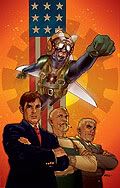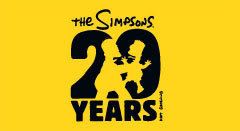Rude Descending A Staircase
Applicants were chosen by lottery and the winners found themselves in an environment more like college than high school. There were classes to be selected, credits to be earned and, in place of the traditional grading system of A through E, the teacher would write an “evaluation” which would discuss in detail what they thought of your performance. Not only that, but the student then got to evaluate the teacher, a dream come true for any student who felt they’d been slighted by a prejudiced educator.
The faculty consisted of private citizens and business people who were willing to share their expertise, the only caveat being that they had to be in the vicinity of Center City Philadelphia, close enough so that students would have enough time enough to travel from class to class. For instance, I had a class about Broadcasting in a local radio station, a class about Economics with a local Economics teacher (the class consisted of me and one other student), and a class on Comparative Religion at the local Art Alliance.
You would think that this would have been the ideal place for someone who had authority issues. But, as I’ll relate another time, I managed to find a way to turn most of these advantages against me eventually. It all ended up with my having to take a summer school class for the functionally illiterate. After awhile the teacher couldn’t figure out why I was there and said I could just hang in the library if I wanted.
Later that year my diploma arrived – in the mail. But that’s another story.
Sometime circa 1972, our section of the school (it was divided onto four – Alpha, Beta, Gamma and Delta) organized an event to take place atop the long staircase at the Art Museum that would allow the students to show off their musical talents. Having honed my chops on song parodies, having recorded a song called “Do The Christ” for an assignment from my Comparative Religion class (“You hang up on the cross/Hey, man, it’s really boss!”) and having made my art statement back in Drama Class, I seized on the idea of blending the music and the art.
I quickly corralled my drummer friend Harry into participating. I’d met him at school and ran into him frequently at The Franklin Institute, a local science museum where students had unlimited access to its Giant Heart, Nickelodeon, and Smell Bar. It was actually a pretty cool place to hang out between classes. Harry worked there part time on the trains and was himself a model train enthusiast with an impressive set-up at home. He was happy enough to go along with whatever I was planning which I thought was awfully tolerant of him.
Looking for inspiration, I hit on using the accordion that a friend had recently revealed she owned. I knew that had to fit in somewhere. So I had drums and an accordion. But it was my very recently acquired (not to mention first) girlfriend who suggested that she could be the vocalist for the ensemble. She wrote the lyrics for the piece, which consisted of four words: “My mind is messed.” I would bash the hell out of the accordion keyboard while she declaimed the lyrics and Harry kept up a steady beat to nowhere. We christened the number “Drug Fiend Polka” and prepared for our debut.
It was indeed a beautiful sunny day when we set up for the show. From the top of the steps you have a beautiful view of the city from the end of the Parkway whose other end is marked by City Hall. I chose to wear a rather loud jacket, which seemed appropriate considering the racket we were about to make. After a relatively straight rendition of some current radio hit rendered sincerely by some fellow students, a small crowd gathered around as I strapped on the accordion. My girlfriend stood patiently at the microphone while Harry took his place behind the drums.
I was cognizant that the building behind us held some of the great landmarks of Surrealist and Dadaist Art. We would be playing beneath the eyes of Marcel Duchamp’s now-shattered masterpiece “The Bride Stripped Bare By Her Bachelors, Even” and his enigmatic “L’Etant Donnes.” Hopefully, we would receive his blessing as we prepared to present our own ready-made, a composition that owed as much to the gods of chance as it did to conscious preparation.
These ruminations were rudely interrupted as all at once, Harry began to pound out a massive basic rock beat. It built up the anticipation of the audience who started to lean in, wondering where this was going. Then, suddenly, I hit the accordion keyboard with extreme prejudice, producing a roar like a church organ having gone over to the other side. I continued to improvise in an atonal fashion until our vocalist felt the time was right and then she put the cherry on top:
“My miiiiiiiiiiiiiiiiiiiiind is meeeeeeeeeeeeessssssssseeeeeedd!!!!”
I began to swing the box around, like I was the Hendrix of the accordion. If I could have gotten feedback out of it, I would have. All of a sudden, the faceplate of the instrument went flying off into the crowd. Now we had a show.
We kept up this tornado of auditory brutality until the three of us eventually found some natural place to stop, and we concluded to some applause. Someone handed me back the faceplate as I started to put the instrument away. A lot of folks seemed to like it and told us so. There was even one person who wanted to join the group.
But the “Drug Fiend Polka” was history. In a few years, the spot where it was performed would be universally celebrated as the place where a cinematic underdog makes good. But in the secret history of Philadelphia, it was first and foremost the place where an accordion went mad, a woman screamed about the deterioration of her mental faculties and a man with a train fetish held the two together through sheer force of will.
The place where Cubism and Rubism met.
















